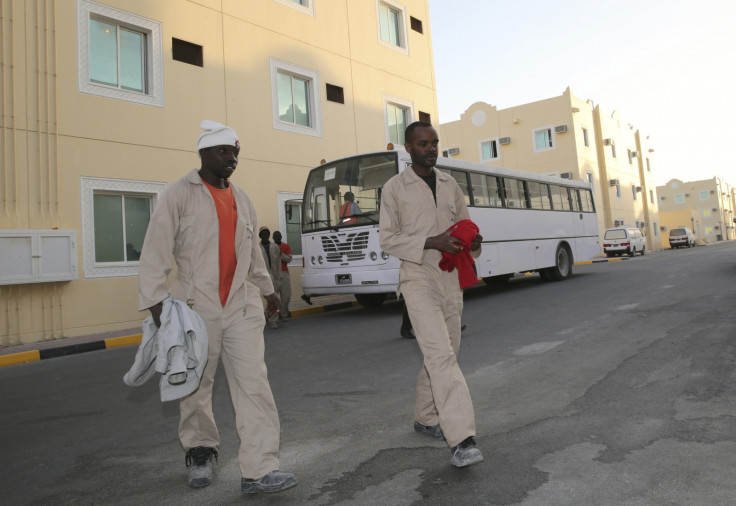Qatar Lags Behind its Own Promises on Migrant Workers' Rights

Qatar is crucially still failing to implement migrant workers' rights ahead of the 2022 FIFA World Cup despite early pledges to tackle widespread abuses, making only cosmetic changes and empty promises, a damning report released by Amnesty International has uncovered.
The Persian Gulf emirate nation came under intense scrutiny after investigations exposed the dire conditions of migrant workers, primarily Nepalese, who flock into one of the world's wealthiest nations to find jobs in construction.
As the criticism increased, Qatari officials slowly started to recognise the level of the problem, with the Emir saying that he was "personally hurt about the situation".
The spotlight has been put on the infamous kafala system regulating the work structure.
According to the kafala, local citizens and companies have the power to issue official work visas and residency status to migrant workers. Most migrant workers go through recruitment agencies in their countries of origin in order to obtain a sponsor, usually paying high fees ranging from $700 to $3,500 (£440 to £2,200).
Employers view their employees as owned property and therefore engage in abusive actions such as seizing the migrants' passports and restricting their freedom of movement. An astonishing 90% of migrant workers in the country have their passport confiscated by their employer.
This mistreatment amounts to a blatant breach of the right to freedom of movement, according to Amnesty International.
Passport confiscation and other abuses

The Qatari government stated in May 2014 that the current exit permit system would be scrapped and substituted with an automated system granting an exit permit to an employee after a 72-hour grace period for departure. They also promised to increase the penalty for passport confiscation from QAR 10,000 (£1,731) up to QAR 50,000 (£8,652).
However, none of these measures have been implemented. Also, with the promised change, employers will still have the opportunity to prevent the worker from leaving in the 72-hour window.
"It remains unclear on what grounds an employer could object, and how the worker could challenge this objection," Amnesty says in the report. "Any system that gives employers the right to object to someone leaving Qatar is inherently open to abuse."
No changes have been implemented on the kafala system either. The government had announced a plan to reform it by replacing the "No Objection Certificate", with an "employment contract system".
"If the employment contract is for a fixed term, the employee may transfer to another employer at the end of that term. If the employment contract is of an indefinite duration, the employee may transfer to another employer after five years from the date of the contract," the government said.
In September 2014, Qatar also announced that it would not guarantee migrant workers the right to join trade unions.
Another major issue concerning migrant workers in the emirate is the delay or non-payment of wages from their employers. On the issue, the Qatari cabinet approved a decision to introduce a wage protection system - but again, the Labour Law has not been amended.
Earlier in September, two British employees of the Global Network for Rights and Development (GNRD), were being held by authorities for violating the "laws of the State of Qatar" while investigating the working conditions of migrant Nepalese workers involved in the 2022 World Cup's building project. They were later released.
© Copyright IBTimes 2025. All rights reserved.






















